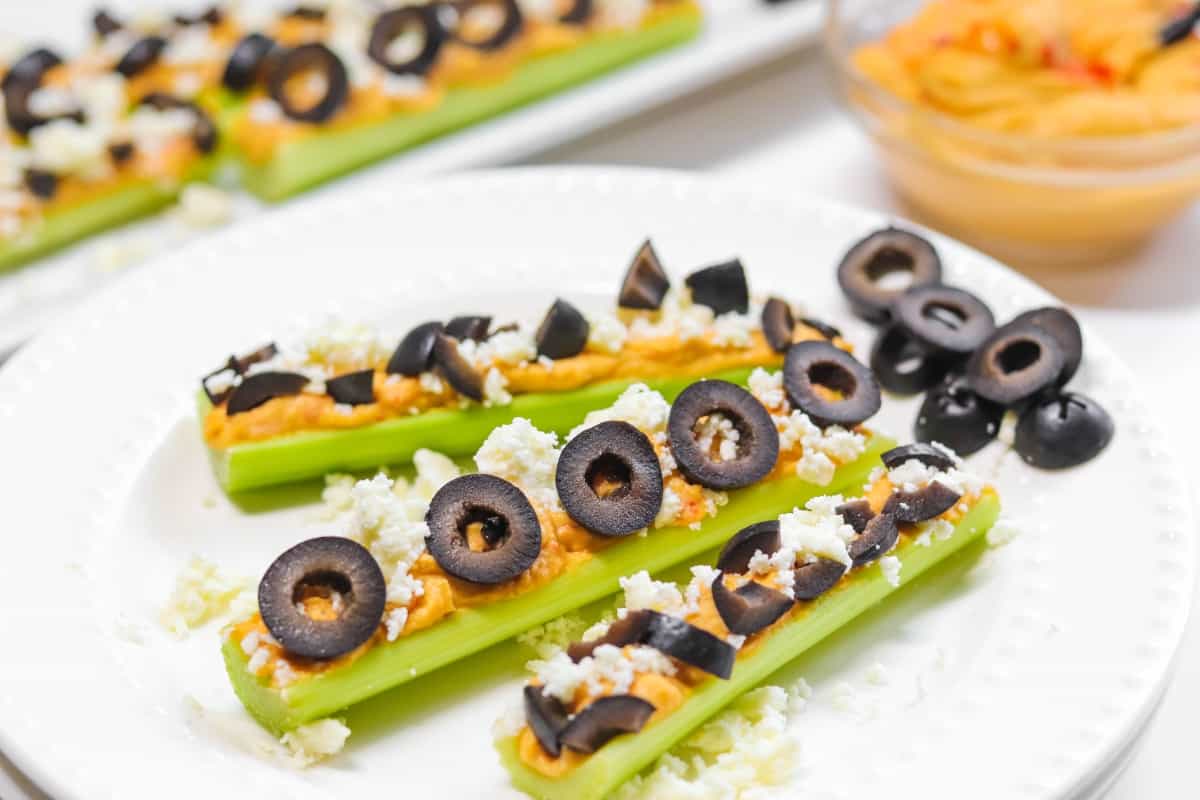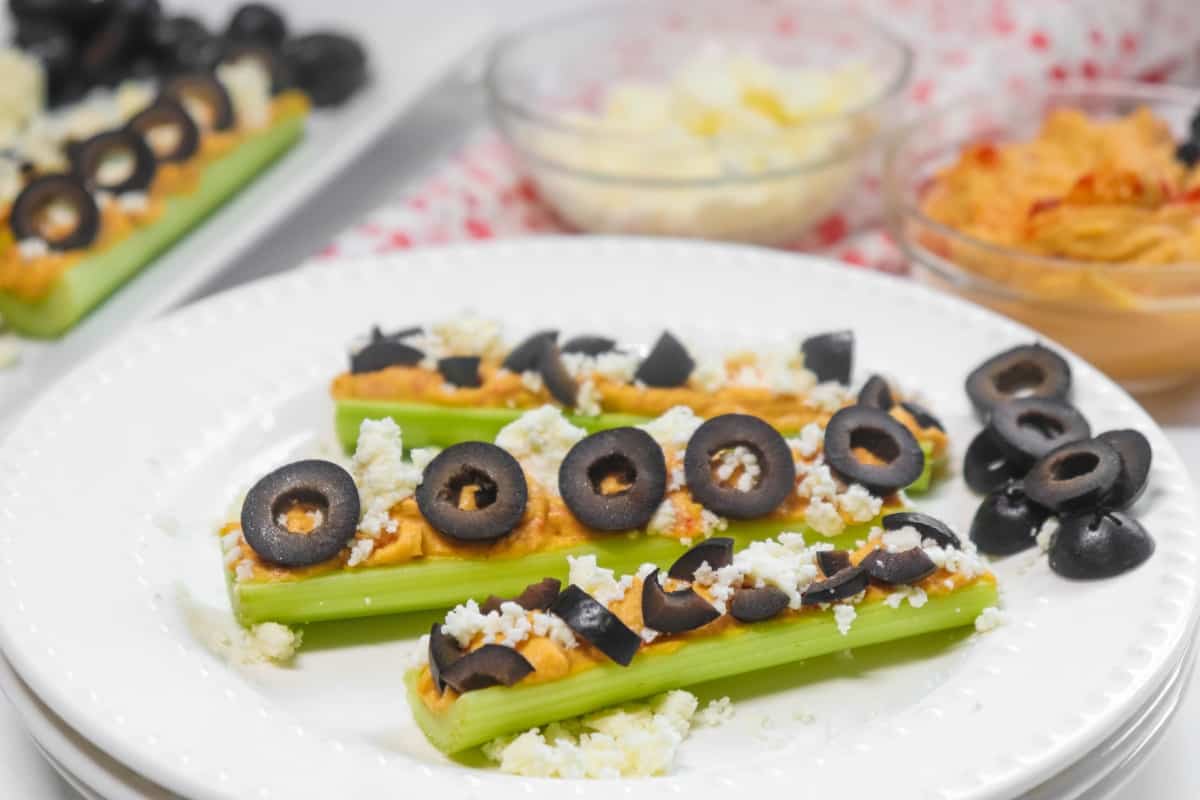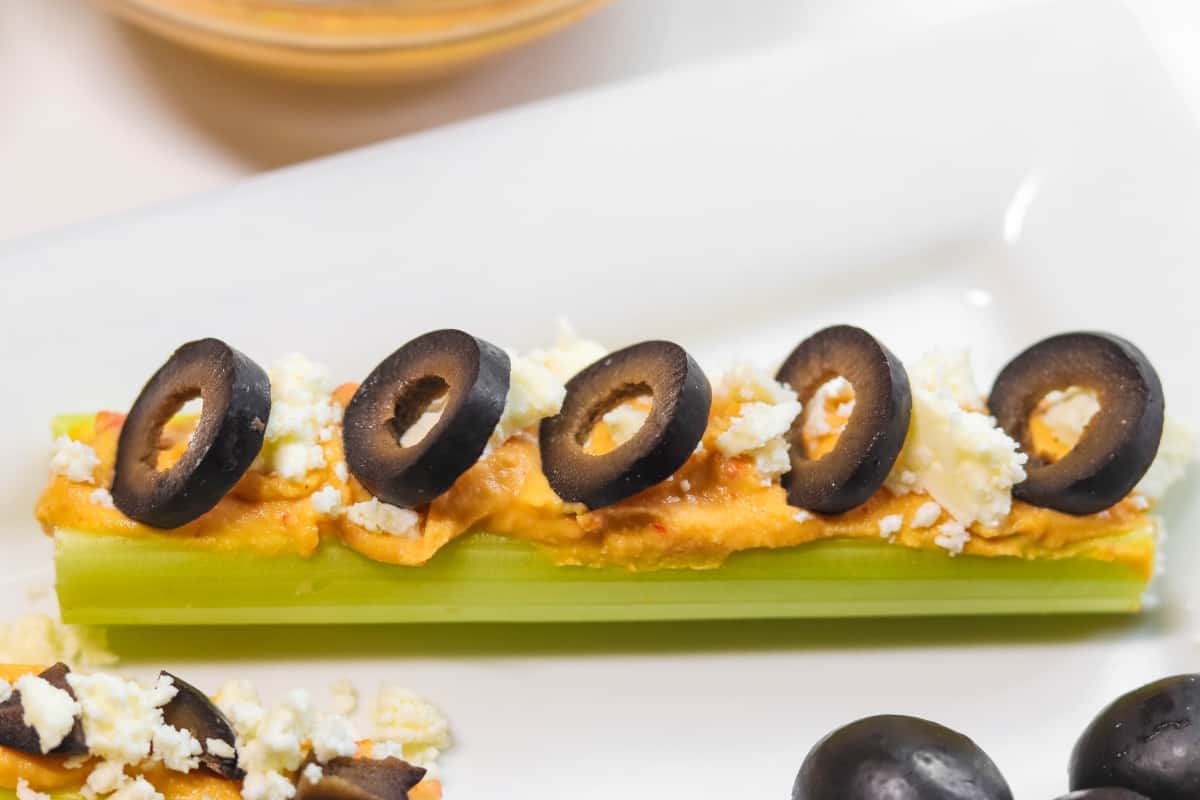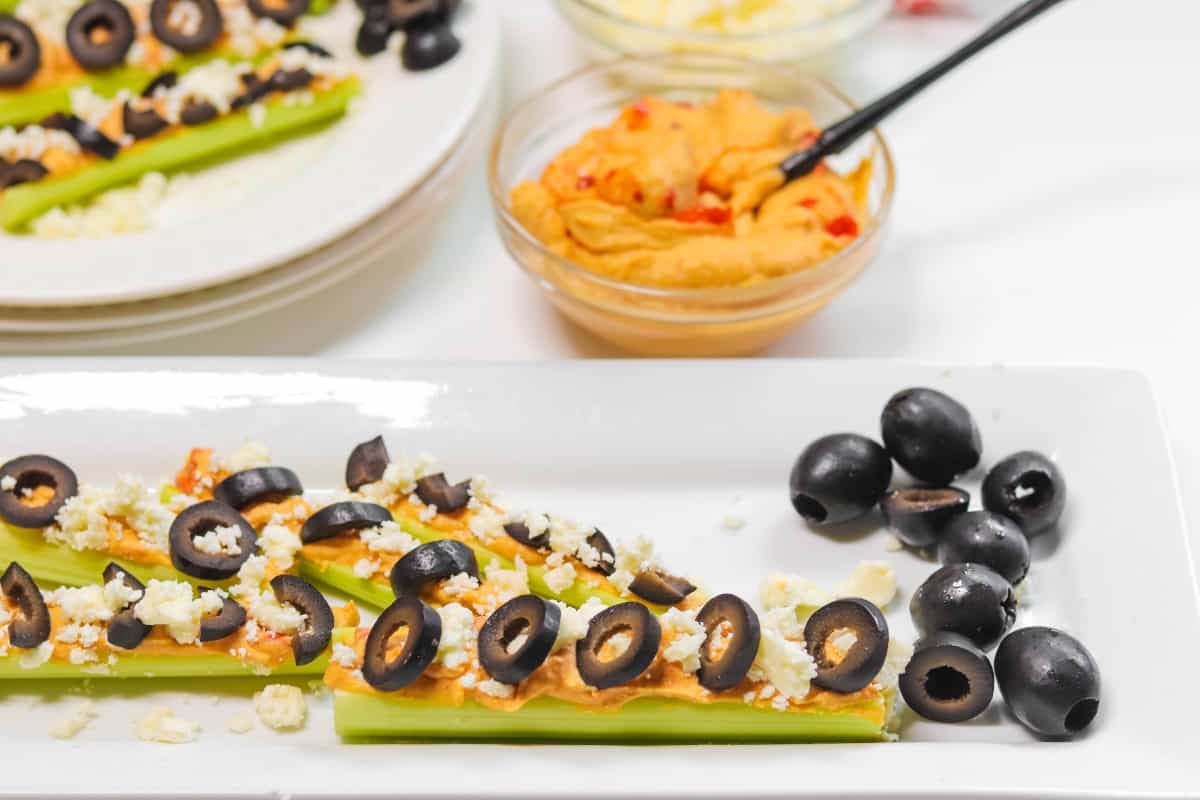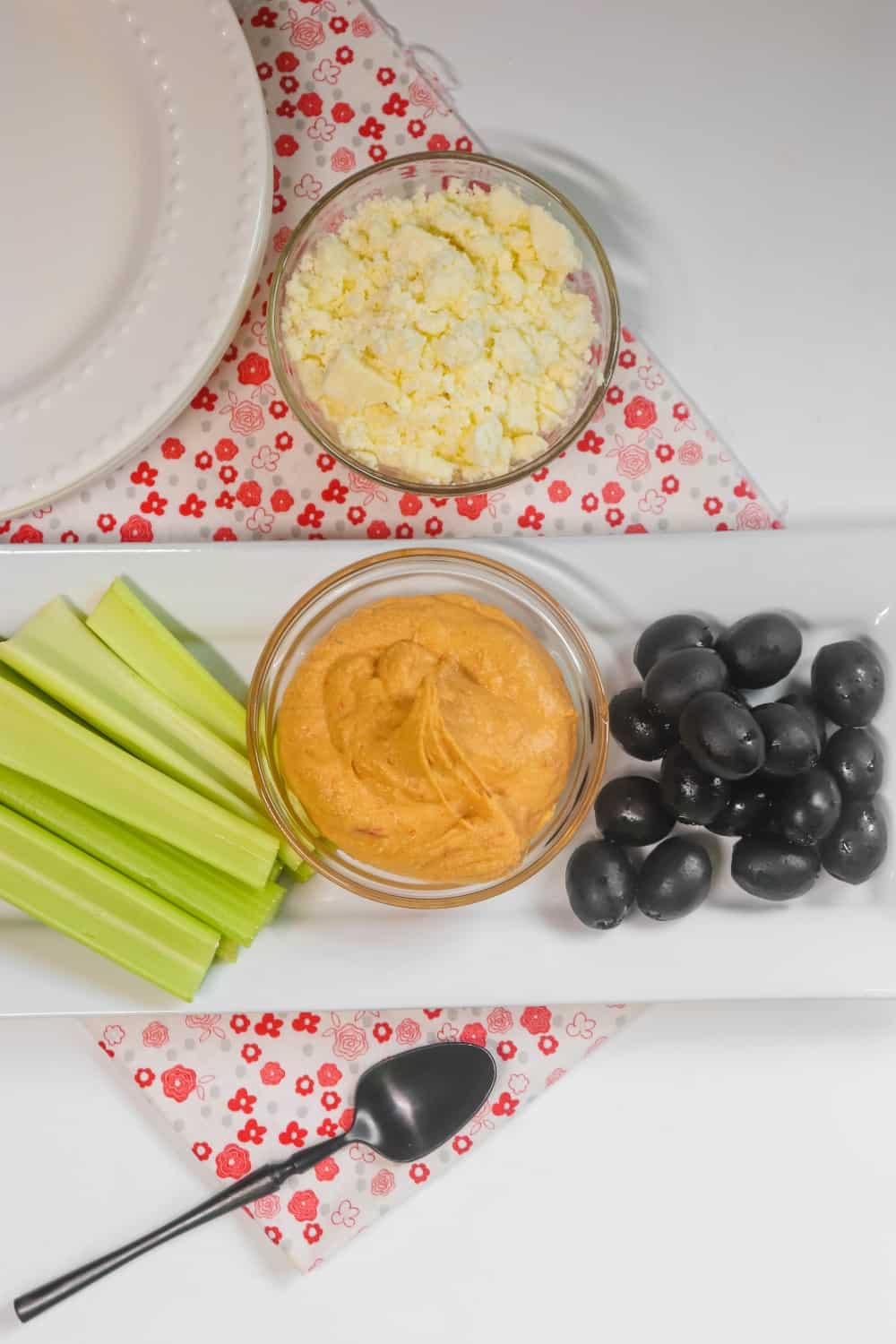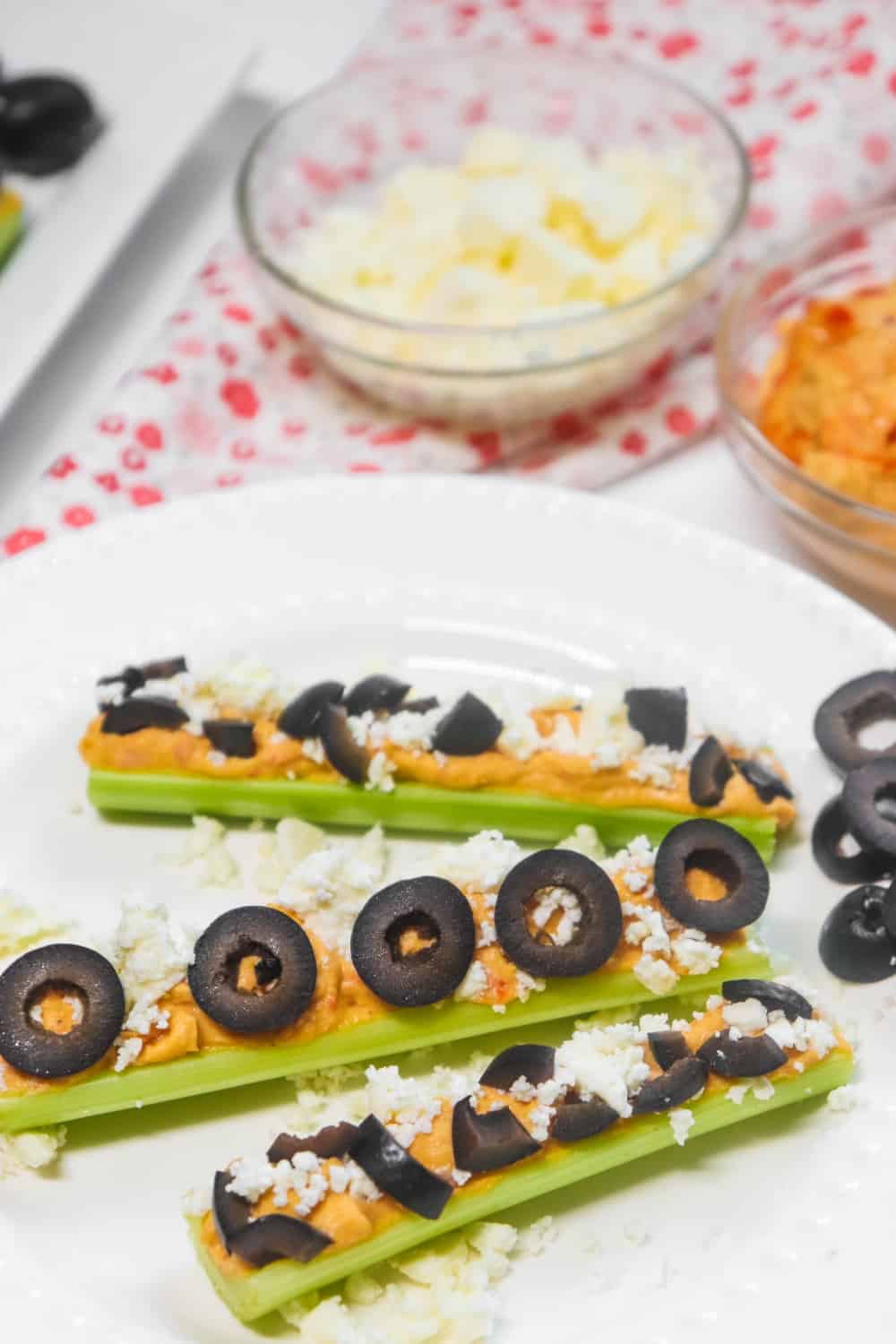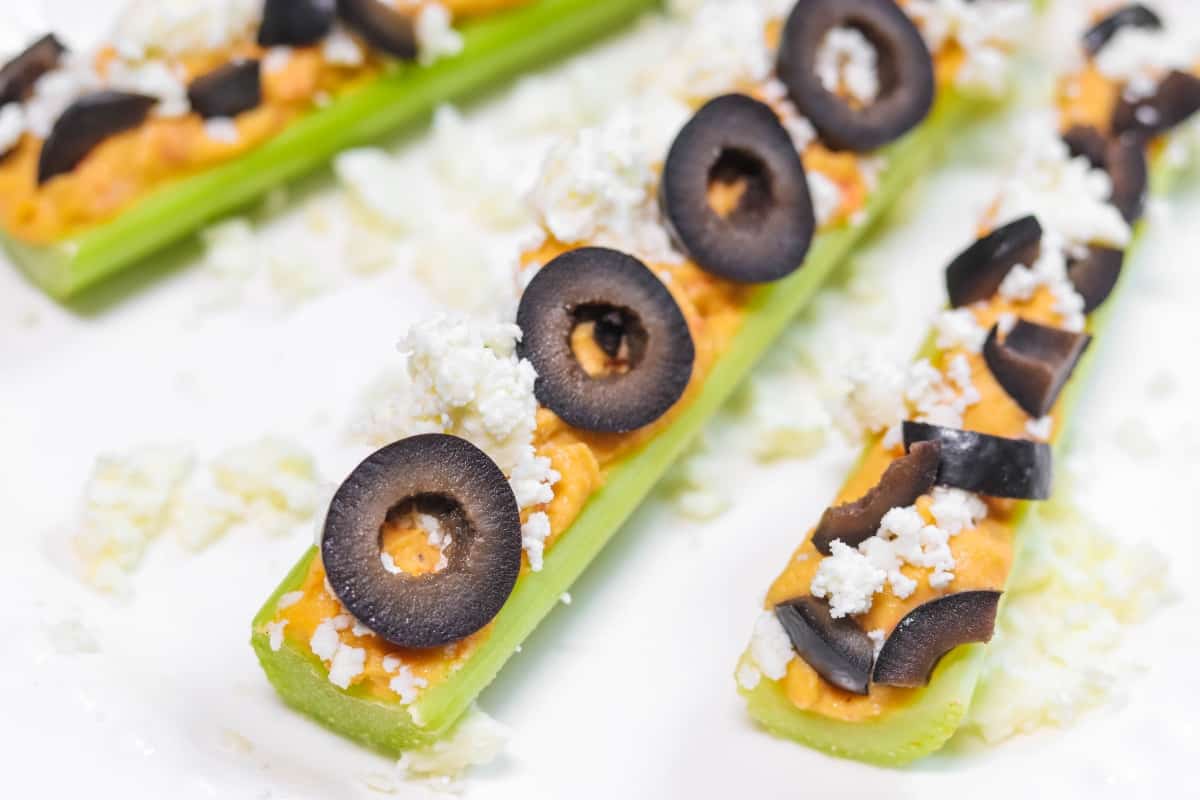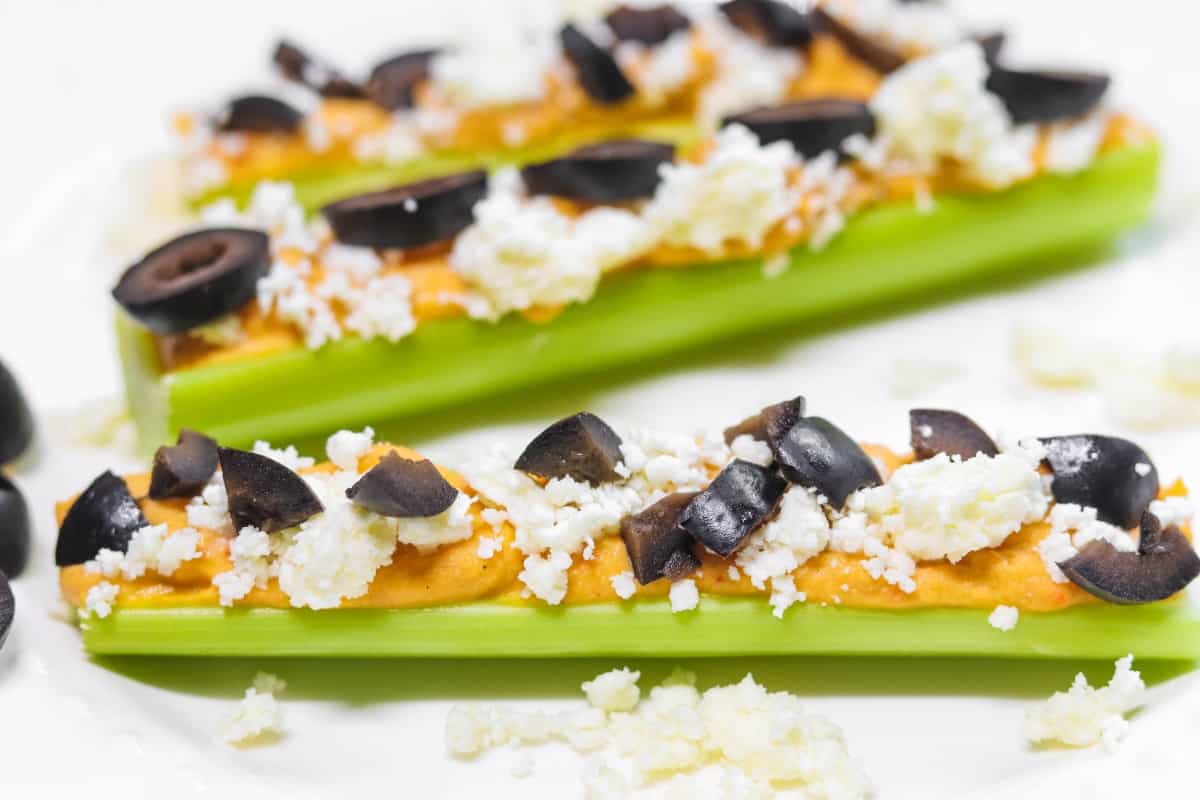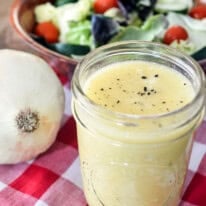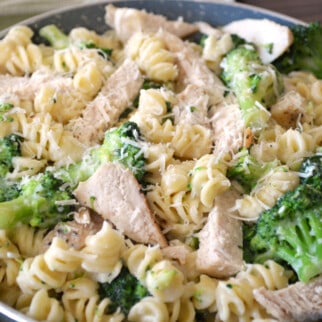Greek Stuffed Celery
Move over classic Ants on a Log, there’s a new Greek-inspired treat in town! This easy celery recipe is stuffed with hummus and topped with crumbled feta cheese and chopped olives. Add a little more flair with chopped tomatoes, peppers or cucumbers. So easy, even kids can make these themselves!
Nutrition Tip: Do not overlook the humble celery, as this veggie can help reduce bloating and water retention with its diuretic effects.
Greek Stuffed Celery is the perfect appetizer or snack for any occasion. This dish is packed with flavor and easy to make.
Is Celery Really a Zero Calorie Food?
There isn’t really any such thing as a Zero Calorie Food. Even the so-called “zero calorie” foods have some calories in them. Celery is often touted as a zero calorie food, but that really isn’t the case. This is in large part due to the fact that VERY few people ever eat celery plain. For example, peanut butter and in the case of this recipe hummus. Though admittedly, hummus has a lot less calories.
Hummus has 25-35 calories per tablespoon depending on the type you use, and peanut butter can have as much as 100 calories per tablespoon depending on the brand you buy.
Is Feta Cheese Healthy?
Feta cheese is a delicious and nutritious cheese that can be enjoyed as part of a healthy diet. But what are the health benefits of feta cheese?
Feta cheese is a good source of protein and calcium, and it also contains probiotics which can help to improve gut health. Feta cheese is low in fat and calories, making it a great choice for those watching their weight.
So, is feta cheese good for you? Yes! However, like all things – too much of anything can be a bad thing. That’s why it’s best to enjoy feta cheese as part of a healthy, balanced diet and enjoy the many health benefits it has to offer without any guilt.
What Type of Olives Should I Use?
There are a few different types of olives that are commonly used in Greek dishes. The most common type of olive is the Kalamata olive. These olives are named after the city of Kalamata in Greece, and they have a deep purple color. Kalamata olives have a briny and tangy flavor, which is why they are usually used in salads or as a garnish on other dishes.
Another type of olive that is commonly used in Greek cuisine is the cracked green olive. Cracked green olives have a more intense flavor than Kalamata olives, and they are often used in cooked dishes.
Finally, if you are looking for a more mild-flavored olive, then you may want to try Picholine olives. These French green olives have a slightly nutty flavor that is perfect for dishes like pasta salads or bruschetta.
Whichever type of olive you opt for, the good news is they are good for you and have been part of the Greek diet for centuries. Olives are a source of healthy fats and antioxidants, which can help protect against heart disease and cancer. They are also a good source of vitamins E and K, iron, and magnesium.
I’m on a Low Sodium Diet – Aren’t Olives High in Salt?
There is a common belief that olives are high in salt. This is likely due to the fact that they are often found in brine, or salty water. However, while olives themselves are actually not high in salt, food producers usually store olives in water that has been saturated with salt, which is why people should consume jarred and canned olives in moderation.
Over time, excessive salt can cause damage to a person’s health, resulting in high blood pressure, heart attacks, and strokes.
Getting Kids Excited About Eating Greek Stuffed Celery
It’s no secret that getting kids to eat their vegetables can be a challenge for parents. But there are some simple ways to make sure your little ones are getting the nutrients they need.
One way to get kids excited about veggie dishes like this Greek Stuffed Celery is by involving them in the process of making them. Let them help you wash and chop the vegetables, and then let them choose their favorite toppings for their meal – even if it deviates from the recipe you’re making!
Another way to get kids to eat more vegetables is by making the process more fun. For example, making the hummus from scratch and then putting it into piping bags with fun tips to make cool designs as it comes out onto the celery.
Finally, don’t forget to lead by example! If you’re not eating your veggies, chances are your kids won’t either. So make sure to incorporate plenty of vegetables into your own diet, and soon enough your kids will be following suit.
Make sure to PIN IT!

Greek Stuffed Celery
Ingredients
- 6 tablespoons hummus
- 6 celery sticks
- 3 tablespoons crumbled feta cheese
- 6 small olives sliced
Instructions
- Spread 1 Tbsp. hummus in each celery stick. Top with feta and olives.


